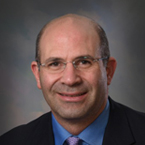Pancreatic Cancer Action Network-AACR Research Acceleration Network Grants
The goal of the Pancreatic Cancer Action Network-AACR Research Acceleration Network (RAN) Grants is to provide funding and strategic assistance to research projects with the potential to double survival for pancreatic cancer by the year 2020. Projects must be implemented by multi-institutional teams and include a clinical component with an endpoint relevant to improving the detection or treatment of pancreatic cancer.
2015 Grantees

Jonathan R. Brody, PhD
Associate Professor and Director of Surgical Research
Thomas Jefferson University
Philadelphia, Pennsylvania

Christopher Albanese, PhD
Professor of Oncology and Pathology
Georgetown University Medical Center
Washington, D.C.

Subha Madhavan, PhD
Director, Innovation Center for Biomedical Informatics
Georgetown University Medical Center
Washington, D.C.

Emanuel F. Petricoin III, PhD
Professor and Co-director, Center for Applied Proteomics and Molecular Medicine
George Mason University
Fairfax, Virginia

Michael J. Pishvaian, MD, PhD
Assistant Professor in Hematology/Oncology
Lombardi Comprehensive Cancer Center
Washington, D.C.
Research
The team previously conducted a pilot trial that demonstrated the feasibility of delivering Molecularly Tailored Therapy (MTT) for metastatic pancreatic cancer patients. In this project, they are evaluating the benefits of MTT versus physician-selected standard of care for patients with metastatic disease. In addition, they are leveraging the findings from the clinical trial to interrogate and define a set of network models representing major relevant changes in pancreatic cancer cells that associate significantly with response or resistance to standard therapies. This work is expected to culminate in a version 2.0 molecular algorithm for the next, larger clinical trial. The team is also defining novel chemoresistance mechanisms and identifying targets to overcome such resistance in pancreatic cancer cells.